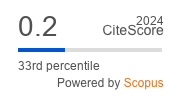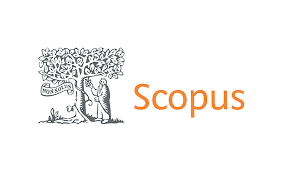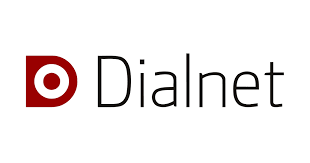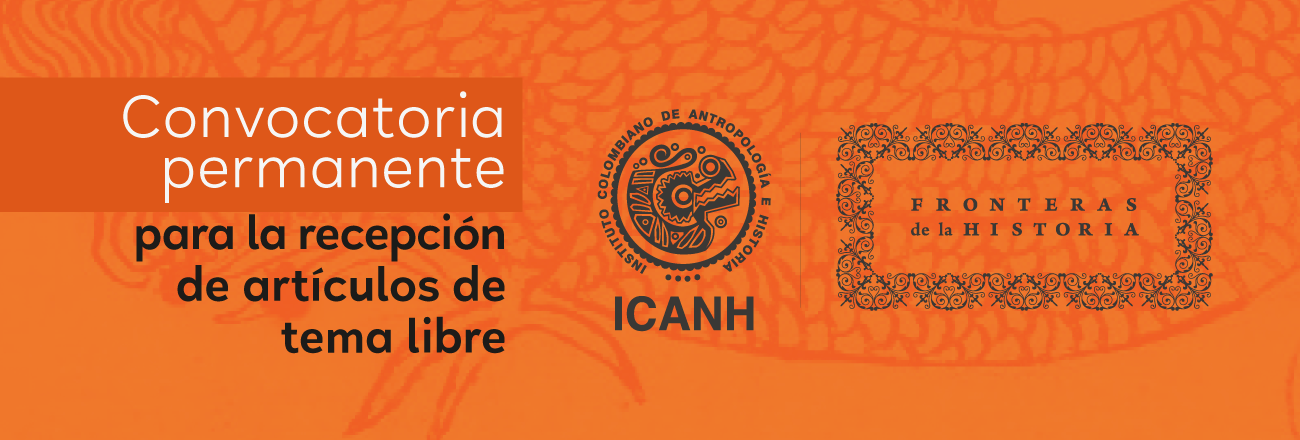The teaching couple method as a practicum experience for the development of collaborative performance aimed at co-teaching
Abstract
Collaborative work is one of the challenges that is installed within the Initial Teacher Education from the updates that the public policy in Chile has undergone. For this purpose, this article systematizes the results of a research project that resorted to the “pedagogical pair” device in order to promote the development of collaborative performances that contribute to the processes of teacher identity, in students who studied professional practice in the careers of Special Education and History and Geography. For this purpose, their answers were analyzed from two instruments applied at the beginning and at the end of their practice in duo, concluding that the "pedagogical couple" favors the development of collaborative identity processes, expressed in a recognition of the other as a model to follow; as an experience that expands didactic and pedagogical knowledge; and as an experience that allows generating greater security in the exercise of the profession. On the other hand, the results call for greater instances of reflectivity aimed at dismantling positions of power of regular teachers over specialist teachers, positions that constitute an obstacle to the deepening of collaborative and inclusive pedagogical practices.
Downloads
References
Akkerman S. F., Bakker A. (2011): “Boundary crossing and boundary objects”, Review of Educational Research, 81, 2, pp. 132–169. DOI: https://doi.org/10.3102/0034654311404435
Al-Saaideh, M. A. y Al-Zyoud, M. (2015): “Benefits of teaching interdisciplinary subjects collaboratively in Jordanian pre-vocational education”, Educational Research and Reviews, 10, pp. 2702-2712. DOI: https://doi.org/10.5897/ERR2015.2462
Antúnez, S. (1999): “El trabajo en equipo de los profesores y profesoras: factor de calidad, necesidad y problema. El papel de los directivos escolares”, Revista Educar, 24, pp. 89-110.
Ávalos, B. Y Sotomayor, C. (2012): “Cómo ven su identidad los docentes chilenos”, Perspectiva Educacional, 51,1, pp. 77-95.
Bekerman, D. y Dankner, L. (2010): “La pareja pedagógica en el ámbito universitario, un aporte a la Didáctica Colaborativa”, Formación universitaria, 3, 6, pp. 3-8.
Bolívar, A. (2006): La identidad profesional del profesorado de secundaria: crisis y reconstrucción, Málaga, Ediciones Aljibe.
Bray, L. E. y Russell, J. L. (2018): “The Dynamic Interaction Between Institutional Pressures and Activity: An Examination of the Implementation of IEPs in Secondary Inclusive Settings”, Educational Evaluation and Policy Analysis, 40, 2, pp. 243–266.
Cabezas, V., Gómez, C., Orrego, V., Medeiros, M., Palacios, P., Nogueira, A., Suckel, M., y Peri, A. (2021): “Professional Learning Communities in Chile: Dimensions and Development Stages”, Estudios pedagógicos (Valdivia), 47, 3, 141-165. DOI: https://dx.doi.org/10.4067/S0718-07052021000300141
Cantón, I. y Tardif, M. (2018): Identidad profesional docente, Madrid, Narcea.
Castillo, P. (2021): “Inclusión educativa en la formación docente en Chile: tensiones y perspectivas de cambio”, Revista de Estudios y Experiencias en Educación REXE, 20, 43, pp. 359-375.
CPEIP (2020): Informe de Resultados Nacionales. Evaluación Nacional Diagnóstica de la Formación Inicial Docente 2019, Santiago de Chile. Disponible en web: https://www.cpeip.cl/wp-content/uploads/2020/08/Informe-Nacional-END-2019_rect.pdf
CPEIP (2021): Informe de Resultados Nacionales. Evaluación Nacional Diagnóstica de la Formación Inicial Docente 2020, Santiago de Chile. Disponible en web: https://cpeip.cl/wp-content/uploads/2022/10/Informe-Nacional-Cohorte-2020_compressed-1.pdf
Echeita, G. y Ainscow, M. (2011): “La educación inclusiva como derecho. Marco de referencia y pautas de acción para el desarrollo de una revolución pendiente”, Revista de Didáctica de la Lengua y la Literatura, 12, pp. 26-46.
Fishbaugh, M. (1997): Models of Collaboration, Boston, Allun & Bacon.
Friend, M., y Cook, L. (1996): Interactions: Collaboration skills for school professionals, New York, White Plains, Longman.
Friend, M. y Cook, L. (2010): Interactions: Collaboration Skills for School Professionals, Pearson.
Gaete, A., Gómez, V. y Bascopé, M. (2016): ¿Qué le piden los profesores a la formación inicial docente en Chile?, Temas de la Agenda Pública, 11, 86, pp. 3-15. Disponible en web: https://politicaspublicas.uc.cl/wp-content/uploads/2016/06/Qu%C3%A9-le-piden-los-profesores-a-la-formaci%C3%B3n-inicial-docente-en-Chile.pdf
Gibbs, G. (2019): El análisis de datos cualitativos en Investigación Cualitativa, Madrid, Ediciones Morata.
Härkki, T., Vartiainen, H., Seitamaa-Hakkarainen, P. y Hakkarainen, K. (2021): “Co-teaching in non-linear projects: A contextualised model of co-teaching to support educational change”, Journal of Teaching and Teacher Education, 97, 103188. DOI: https://doi.org/10.1016/j.tate.2020.103188
Jeannin, L., and N. Sing. (2018): “Co-Teaching Within Diversity: A Disruptive Productive Source of Professional Development”, South African Journal of Higher Education, 32, 2, pp. 103-21. DOI: https://doi.org/10.20853/32-2-2337
Kroegera, S., Embury, D., Cooper, A., Brydon-Miller, M., Laine, C. y Johnson, H. (2012): “Stone soup: using co-teaching and photovoice to support inclusive education”, Educational Action Research, 20, 2, pp. 183-200. DOI: https://doi.org/10.1080/09650792.2012.676285
Land, R., Meyer, J. H. y Flanagan, M. T. (2016): Threshold Concepts in Practice, Rotterdam, Sense.
Marcelo, C. (2001): “El Aprendizaje de los formadores en tiempos de cambio. La aportación de las redes y el caso de la Red Andaluza de profesionales en formación”, Profesorado. Revista de currículum y formación del profesorado, 5, 1, pp. 1-17.
Marcelo, C. (2006): Políticas de inserción a la docencia, Taller Internacional “Las políticas de inserción de los nuevos maestros en la profesión docente: la experiencia Latinoamérica y el caso colombiano”, Universidad de Bogotá Jorge Tadeo Lozano, Bogotá, Colombia.
Marcelo, C. (2009): “Los comienzos en la docencia: un profesorado con buenos principios”, Profesorado. Revista de Currículum y Formación del Profesorado, 13, pp. 1-25.
Marcelo, C. y Vaillant, D. (2018): “La formación inicial docente: problemas complejos- respuestas disruptivas”, Cuadernos de Pedagogía, 489, pp. 27-32.
Ministerio de Educación de Chile (2013): Orientaciones Técnicas para Programas de Integración Escolar (PIE), Santiago de Chile. Disponible en web: https://especial.mineduc.cl/wp-content/uploads/sites/31/2016/09/Orientaciones-PIE-2013-3.pdf
Ministerio de Educación (2015): Diversificación de la enseñanza. Decreto 83. Disponible en web: http://especial.mineduc.cl/wp-content/uploads/sites/31/2016/08/Decreto-83-2015.pdf
Ministerio de Educación de Chile (2016): Ley 20.903. Crea el sistema de desarrollo profesional docente y modifica otras normas. Disponible en web: http://bcn.cl/2f72c
Ministerio de Educación de Chile. (2018): Decreto 67. Aprueba normas mínimas nacionales sobre evaluación, calificación y promoción y deroga los decretos exentos N°511 de 1997, N°112 de 1999 y N°83 de 2001. Disponible en web: https://www.bcn.cl/leychile/navegar?idNorma=1127255
Ministerio de Educación de Chile. (2021): Estándares para Profesión Docente. Marco para la Buena Enseñanza, Santiago, Chile, CPEIP. Disponible en web: https://estandaresdocentes.mineduc.cl/wp-content/uploads/2021/08/MBE-2.pdf
Moliner, O., Sales, A., Ferrández, R. y Traver, J. (2011): “Inclusive cultures, policies and practices in Spanish compulsory secondary education schools: Teachers’ perceptions in ordinary and specific teaching contexts”, International Journal of Inclusive Education, 15, 5, 557–572.
Montero, L. y Gewerc, A. (2018): “La profesión docente en la sociedad del conocimiento. Una mirada a través de la revisión de investigaciones de los últimos 10 años”, RED. Revista de Educación a Distancia, 18, 56, pp. 1-22. Disponible en web: https://www.um.es/ead/red/56/montero_gewerc.pdf
Murawski, W. (2005): “Addressing diverse needs through co-teaching: Take baby steps”, Kappa Delta Pi Record, 41(2), 77-82. Disponible en web: https://www.csun.edu/sites/default/files/Addressing-Diverse-Needs-Through-Co-Teaching.pdf
Pérez, D., Ochoa, A., Rocha, V. (2022): “Preconcepciones Identitarias de aspirantes a profesores de un programa de pedagogía media en la ciudad de Santiago de Chile”, Perspectiva Educacional, 61, 2, pp 68-89. Disponible en web: https://dx.doi.org/10.4151/07189729-vol.61-iss.2-art.1184
Ploessl, D. M., Rock, M. L., Schoenfeld, N. A. y Blanks, B. (2010): “On the same page:Practical techniques to enhance co-teaching interactions”, Intervention in School and Clinic, 45, 3, pp. 158-168.
Pratt, S. (2014): “Achieving symbiosis: Working through challenges found in coteaching to achieve effective co-teaching relationships”, Teaching and Teacher Education, 41, pp. 1-12. DOI: https://doi.org/10.1016/j.tate.2014.02.006
Pugach, M. C. y Johnson, L. J. (2002): Collaborative practitioners, collaborative schools, Love Publishing Company.
Rodríguez, B., Mahias, P., Maira, M., González, C., Cabezas, H., y Portigliati, C. (2016): “La mirada de los profesores: debilidades que reconocen en su práctica y cómo proponen superarlas”, Midevidencias, 5. Disponible en web: https://www.inee.edu.mx/wp-content/uploads/2019/01/rodriguez-mahias-y-portigliati-la-mirada-de-los-profesores-2016.pdf
Rytivaara, A. (2012): “Collaborative classroom management in a co-taught primary school classroom”, International Journal of Educational Research, 53, l, 182–191.
Rytivaara, A., Pulkkinen. J y Palmu, I. (2021): “Learning about students in co-teaching teams”, International Journal of Inclusive Education, DOI: https://doi.org/10.1080/13603116.2021.1878299
Rodríguez, F. y Ossa, C. (2014): Valoración del trabajo colaborativo entre profesores de escuelas básicas de Tomé, Chile. Estudios pedagógicos (Valdivia), 40(2), 303-319. https://dx.doi.org/10.4067/S0718-07052014000300018
Sadovsky, P., Itzcovich, H., Quaranta, M., Becerril, M. y García, P. (2016): “Tensiones y desafíos en la construcción de un trabajo colaborativo entre docentes e investigadores en didáctica de la matemática”, Educación matemática, 28, 3, 9-30. DOI: https://doi.org/10.24844/em2803.01
Shin, M., Lee, H., & McKenna, J. W. (2016): “Special education and general education preservice teachers’ co-teaching experiences: A comparative synthesis of qualitative research”, International Journal of Inclusive Education, 20, 1, 91e107. DOI: https://doi.org/10.1080/13603116.2015.1074732
Souto, M., Barbier, J., Cattaneo, M., Coronel, M., Gaidulewicz, L., Goggi, N. E. y Mazza, D. (1999): Grupos y dispositivos de formación, Buenos Aires, Ediciones Novedades Educativas, Universidad de Buenos Aires.
Stake, R. (1998): Investigación con estudio de casos, Madrid, Ediciones Morata.
Vangrieken, K., Meredith, C., Packer, T. y Kyndt, E. (2017): “Teacher communities as a context for professional development: A systematic review”, Teaching and Teacher Education, 61, pp. 47-59. DOI: https://doi.org/10.1016/j.tate.2016.10.001
Wheatley, K. F. (2002): “The potential benefits of teacher efficacy doubts for educational reform”, Teaching and Teacher Education, 18, 1, pp. 5–22. DOI: https://doi.org/10.1016/S0742-051X(01)00047-6
Yin, R. (2018): Case Study Research and Applications. Design and Methods, Los Ángeles, SAGE.
Copyright (c) 2023 David Jacob Pérez Carrillo

This work is licensed under a Creative Commons Attribution-NonCommercial-ShareAlike 4.0 International License.

Esta obra está bajo licencia internacional Creative Commons Reconocimiento-NoComercial-CompartirIgual 4.0.









_18.09_.00_1.png)


















